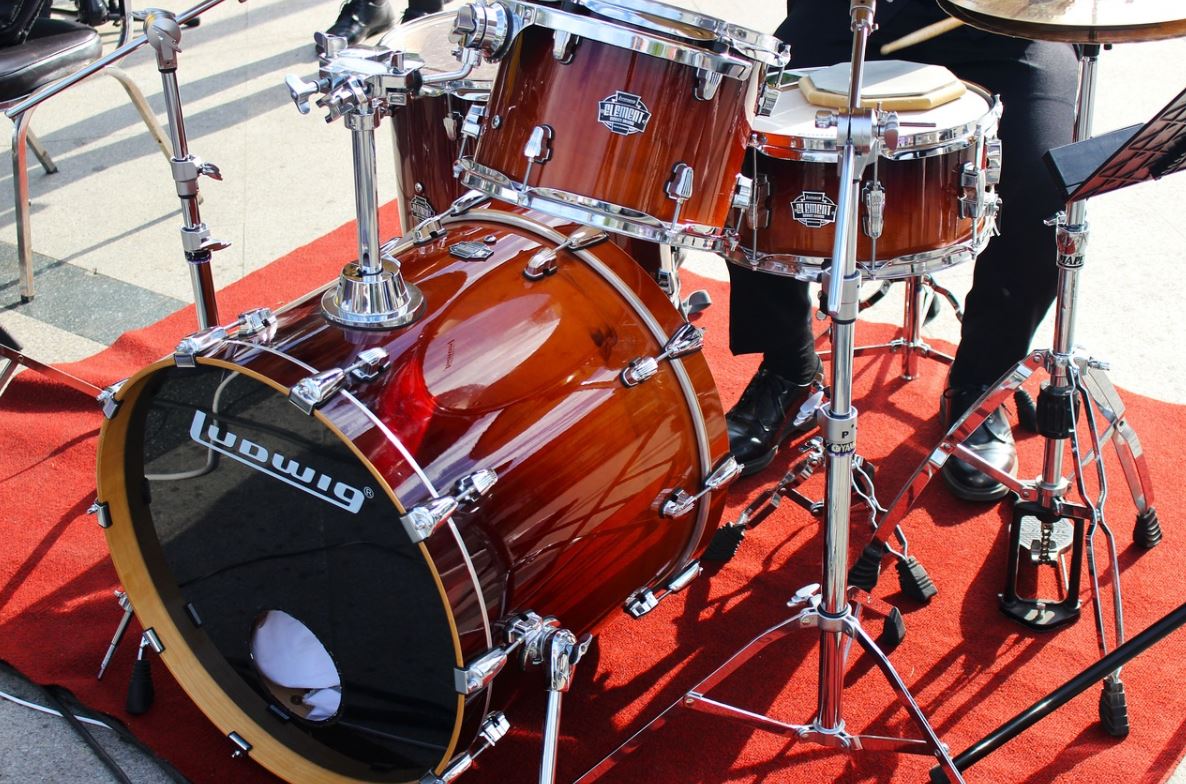Drums have caused many issues with neighbours, family members and housemates. Drums are meant to be loud! Luckily, there are ways that you can still enjoy playing the drums without starting a war. From acoustic treatment to soundproofing, and in more recent years, electronic drum kits have been solutions to keep the peace when a drummer is practicing.
Purchase An Electronic Drum Kit
There are lots of benefits to purchasing an electronic drum kit. These days they come in all shapes and sizes and prices vary. On the market today you can pick up an electronic drum kit that sounds just like an acoustic kit. Some are small and convenient to travel with. In the early days of these devices, most had a low quality sound that drummers didn’t find very appealing, however as technology advanced so did the electronic drum kits. Most kits nowadays allow you to plug in your headphones so you are hardly making any sound at all, apart from what you are listening to yourself. There are electronic drum kits that allow you to charge the battery, so you don’t need to be hauling around any extra cables when playing a gig. Unlike a traditional drum kit you can alter the volume to a setting that suits you. Some kits have pre-recordings to help you practice and play along. There are some kits designed to give you the same feel as if you are playing a traditional kit. To check out some electronic drum kits view Sound Halo’s guide.
Purchase Drum Practice Pads
Another simple way to practice your drumming without making excessive noise is by buying drum practice pads. You can connect the practice pads to your acoustic drum kit so that it will reduce the sound when playing. If you are constantly trying to change the sound of your drums to make less sound, this can be a simple solution and you won’t need to re-skin your drums each time you have a drum session. They are a lot more convenient than a traditional drum set and are easy to travel with. It can be great for drummers who don’t have a lot of space at home.
Unfortunately, some drummers don’t enjoy the feel of playing with practice pads as they can have less bounce than a drum that has a standard skin.
Change The Sticks That You Use
The bigger and heavier the sticks are, the more sound your drums will produce. If you were to buy sticks that are thinner and weigh less you’ll be guaranteed to reduce the sound of your drums. Understand that lighter sticks don’t often last that long as they tend to break easily.
Another option is to purchase rods. Rods are often made of foam with wood inside so they create much less noise than wooden sticks. There are also a lot of brushes on the market that can help. Retractable brushes are ideal and less flimsy. The technique might take a bit getting used to but in the long run can help you find a new style and the sound can be pretty good. They are definitely worth experimenting with.
Soundproofing
Soundproofing a room can help reduce the sound of the drums and other musical instruments outside of the room where the drums are. First of all, the drums need to be kept away from windows. Sound travels very easily through most glass. Decorate the room that the drums are in with plenty of carpets and rugs. The thicker the carpet, the better the carpet will absorb the vibrations. A large couch and chairs can also help. You can add curtains on the walls that will also work and it is possible to buy special sound isolating curtains specifically designed to soundproof a room. Make sure to seal up any cracks and areas around the doors so sound can’t get out. If the room is very large, it might be worth your while to build a wall to make it smaller, as a smaller room is much easier to soundproof and will create less sound. Risers are also available or you can make your own. It will reduce the noise from travelling downwards towards the floor. You can also put a mattress behind the door that leads into the room to help reduce the noise from escaping. This will have a similar effect to a door that you might have seen in a practice studio. You could also soundproof the space above the room, by creating a suspended ceiling.

